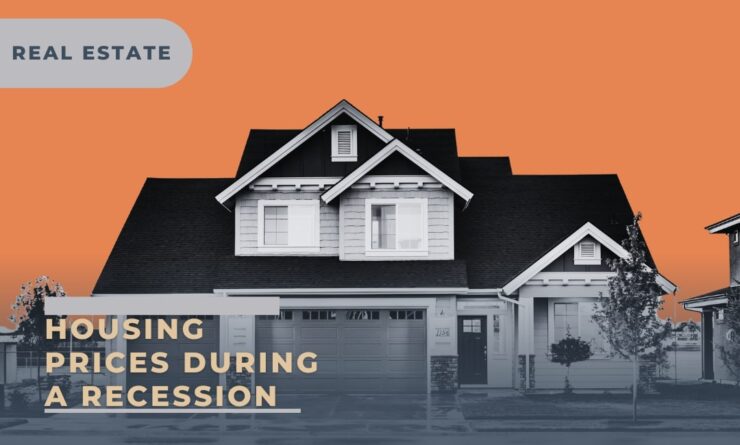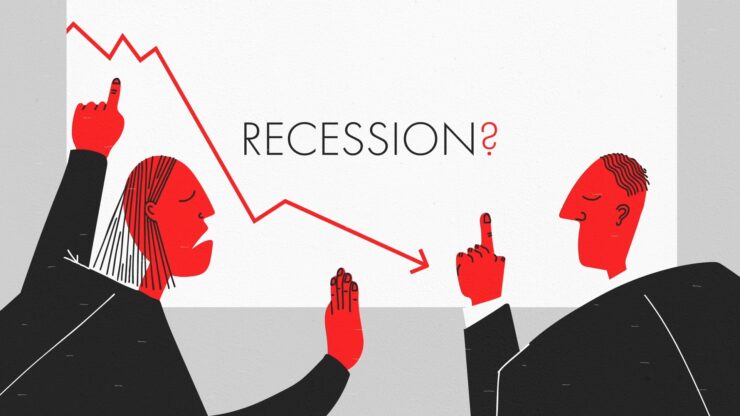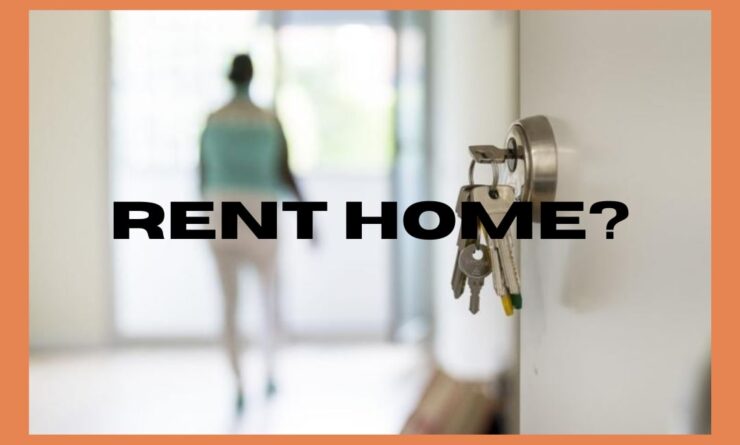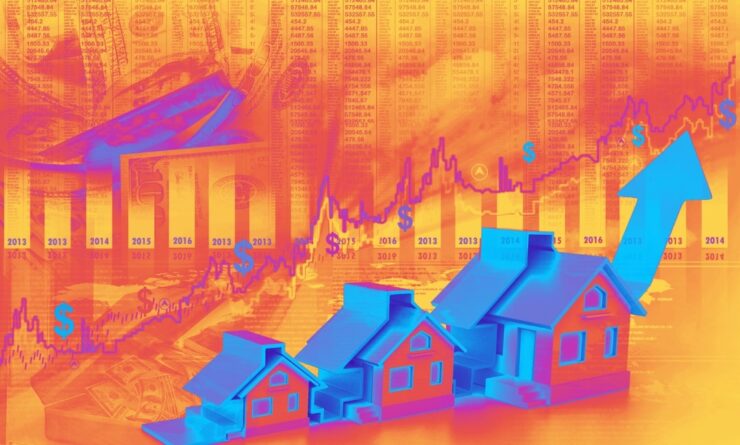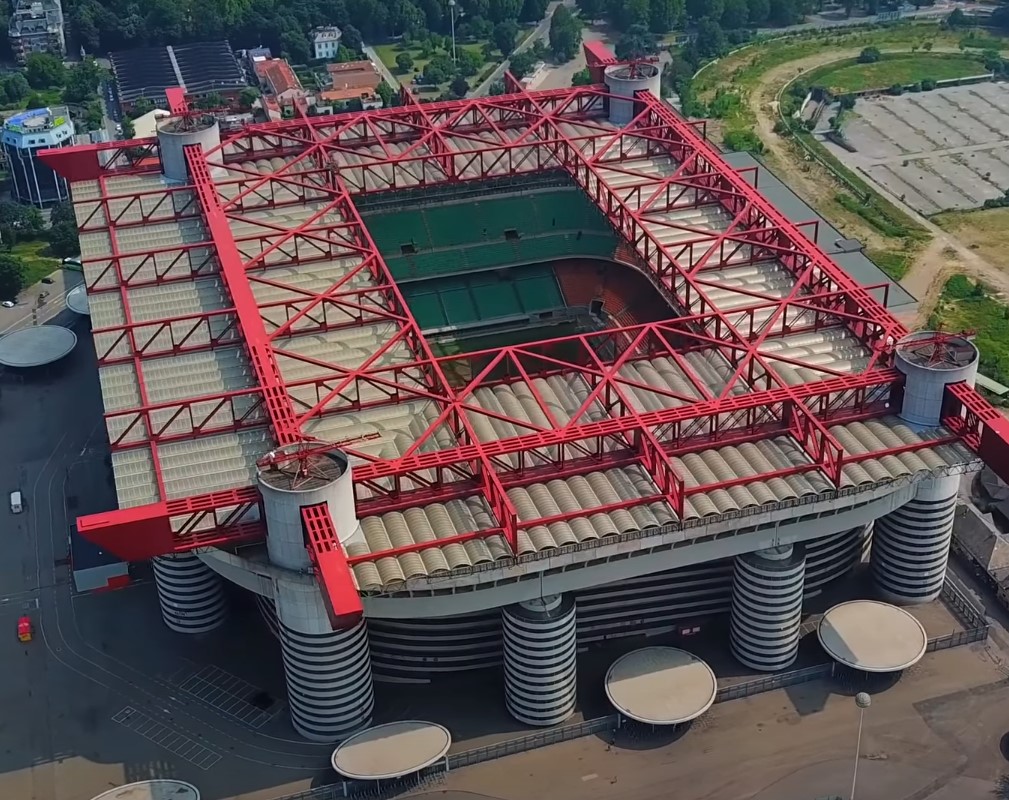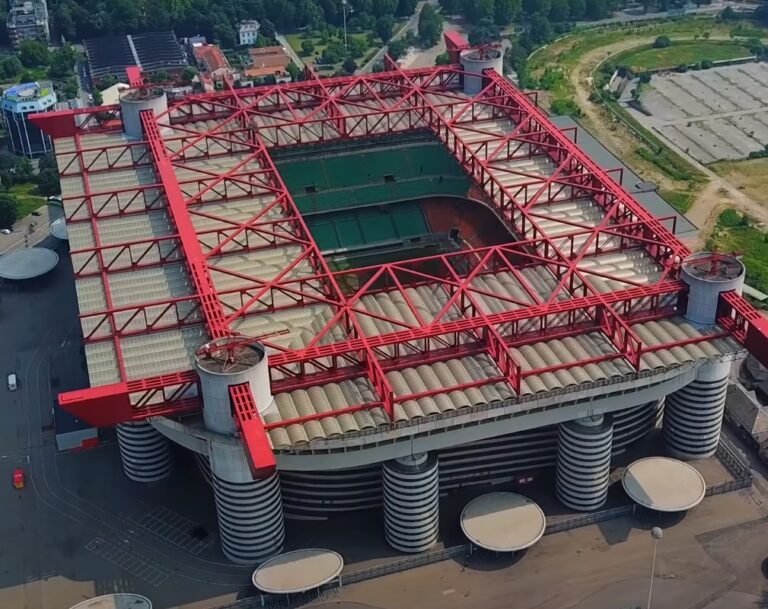If you’re unfamiliar with the dynamics of a recession and its impact on the real estate market, this guide is here to help. Recessions are a normal part of the economic cycle, typically following a period of peak economic activity.
The mere mention of a potential recession can often trigger widespread concern. The key to navigating a recession is to prepare wisely. This involves reducing your expenses, managing your finances carefully, and planning for what lies ahead.
During a recession, you may notice a surge in prices, which can be unsettling. Unemployment rates also tend to rise during these times, adding to the overall anxiety. However, it’s important to remember that recessions are usually short-lived, often lasting only a few months, after which the economy begins to recover.
As we closed out 2022, there was much speculation about whether we were heading for a recession. The outcome is still uncertain, but the mere possibility has caused some degree of panic. The real estate market is particularly sensitive to economic downturns.
In this guide, we’ll explain what a recession is, how it can affect the housing market, whether it’s better to buy or rent a property during a recession, and what happens when the economy begins to bounce back. Continue reading to gain a clearer understanding of the housing market’s behavior during a recession.
What Is a Recession?
The term “recession” often stirs up fear and uncertainty among people. Many are still trying to understand what it means for them and the economy they are part of. Essentially, a recession is a significant, prolonged downturn in economic activity.
A recession is officially recognized when there are two consecutive quarters of negative growth in the gross domestic product. It’s not an abrupt event; if you’re observant of economic trends, you can often foresee a recession.
The National Bureau of Economic Research identifies recessions by analyzing various factors such as payrolls, industrial production, retail sales, and more. While a recession might last only a few months, the economy could take years to recover and reach its previous peak.
What Happens During a Recession?
Now that we’ve defined a recession, let’s delve into what it means for the average person.
Typically, a recession leads to a significant increase in layoffs, causing the country’s unemployment rate to surge. With fewer jobs, people have less money to spend, which in turn affects businesses negatively. For companies to maintain their standard rate and price of goods and services, they need to make a profit.
Unemployment is the primary challenge that an average citizen faces during a recession. For instance, during the Covid-19 pandemic, the U.S. Bureau of Labor Statistics reported that unemployment peaked at 14% in April 2020.
During a recession, you might observe a decrease in the price of some goods and services. This is because many businesses struggle to maintain their production levels and can’t afford to keep their prices as they were. However, the cost of essential items like groceries and gas might increase.
Recessions are more frequent than some might believe, occurring every few years after the economy has peaked. Through careful budgeting, planning, and saving, you can navigate through a recession more effectively.
What Happens to The Housing Market During?
If you’re contemplating buying or selling a property during a recession, it’s crucial to understand the potential challenges and opportunities that may arise.
The onset and duration of a recession, as well as its impact on the housing market, are often uncertain. However, it’s worth noting that housing prices may decrease during a recession, making it an opportune time for some to purchase a home, particularly those who can afford to buy outright rather than relying on a large mortgage loan.
During a recession, mortgage lenders often tighten their lending criteria and increase their rates, making it harder for potential buyers to secure a loan. This leads to less competition among buyers, largely due to the high unemployment rates that recessions typically bring. Lenders need to be sure that borrowers can afford and maintain their mortgage payments during tough economic times.
An increase in foreclosures is another common occurrence during a recession, as people who lose their jobs struggle to keep up with their mortgage payments.
Interestingly, while home prices often drop during a recession, this isn’t always the case. In the last five recessions, home prices fell four times, typically by an average of 5% per year for the duration of the recession.
Real Estate Market in 2024
The real estate market in 2024 has seen some significant changes. One of the most notable is the sharp rise in interest rates, which began at the end of the previous year when home prices reached record highs.
As we moved into 2024, both rates and home prices began to stabilize somewhat, prompting a surge of buyers to enter the market. However, the supply of housing still needs to increase. Low mortgage rates a few years ago encouraged many people to buy homes, and they are now staying put.
There’s ongoing speculation about whether the housing market will crash, with experts closely monitoring whether median home prices will fall, stay the same, or rise as the year progresses. Currently, home prices remain above average, though lower than their peak in 2022, and their trajectory largely depends on the direction of mortgage rates.
Signs suggest that the housing market may self-correct, with mortgage rates gradually decreasing. Over time, this could lead to a reduction in home prices. However, patience is key, as many factors influence the state of the market.
Engaging a local real estate agent when buying or selling a home is highly recommended. These professionals have a deep understanding of the market and can provide valuable insights and advice. If you’re looking to connect with an agent, don’t hesitate to get in touch with us.
Should You Buy Home During Recession?
Whether or not to buy a home during a recession is a decision that depends heavily on individual circumstances. Factors such as your financial stability, employment security, and personal goals all play a role.
When contemplating buying a home during a recession, it’s crucial to weigh the pros and cons. For some, it could be a strategic move, while for others, it might not be the best decision.
If you’re financially secure and confident in your ability to maintain a home purchase throughout a recession and beyond, then capitalizing on lower property prices could be a smart move. However, this decision should be based on your unique situation and financial stability.
In essence, there’s no one-size-fits-all answer to this question. It’s a decision that should be made after careful consideration of your personal circumstances and, ideally, in consultation with a financial advisor or real estate professional.
Should You Rent During a Recession?
While we’ve discussed the potential for home prices to drop during a recession, it doesn’t necessarily mean that rental prices will follow suit. Rent is typically a fixed monthly payment and can fluctuate just like home prices.
During a recession, you’re unlikely to see a significant change in rental prices. They may slightly increase, remain stable, or decrease a bit, but no drastic changes are typically observed. However, this can lead to another challenge.
Many people, apprehensive about buying a home during a recession, opt to rent instead. This can lead to increased competition for rental properties, making it harder to find available apartments, condos, or houses.
These factors can vary depending on your location and the severity of the recession’s impact on the local economy. In the long run, some people find it more advantageous to rent while the economy recovers from a recession.
What Happens After?
Once a recession ends and the economy begins to recover, the housing market often experiences a shift. With prices still relatively low and interest rates beginning to decrease, the market often becomes more favorable for buyers.
This typically occurs when there’s a surge of buyers but not enough homes for sale, leading to a competitive market.
Those who weathered the recession without significant financial impact often seize this opportunity to buy homes at attractive prices. If you are one of these individuals, this could be an opportune time to enter the housing market.
FAQ
What Happens to Home Prices in a Recession?
Home prices can fluctuate during a recession. In some cases, they may decrease due to economic uncertainty and reduced buyer demand. However, this isn’t always the case, and the impact on home prices can vary depending on the severity and duration of the recession.
If The Housing Market Crashes What Happens To Interest Rates?
If the housing market crashes, interest rates can be affected. Central banks may lower interest rates to stimulate the economy and encourage borrowing. However, the relationship between a housing market crash and interest rates can be complex and influenced by a range of factors.
How Do Recessions Affect Housing Prices in the US?
Recessions can make the market more favorable for homebuyers due to potentially lower prices. However, it can also be harder to qualify for a mortgage during a recession due to tighter lending standards and increased economic uncertainty.
What Happens to the Housing Market After a Recession?
After a recession, the housing market can see a turn while the economy is rebuilding. Prices may still be below average, and interest rates might start to lower, shifting the market into a buyer’s market. However, the recovery process can vary depending on the specifics of the recession and the broader economic context.
Does Rent Decrease During a Recession?
Rental prices may not necessarily decrease during a recession. While some renters might see a slight decrease or stability in their rent, others might experience an increase. The impact on rent prices can vary depending on the local market conditions and the severity of the recession.
What Happens to Foreclosures During a Recession?
During a recession, the rate of foreclosures can increase. This is often due to higher unemployment rates, which can make it harder for homeowners to keep up with their mortgage payments. However, the increase in foreclosures can vary depending on the specifics of the recession and the broader economic context.
How Does a Recession Impact the Supply and Demand in the Housing Market?
A recession can impact both the supply and demand in the housing market. On the demand side, economic uncertainty and increased unemployment can reduce the number of potential buyers. On the supply side, homebuilders might reduce construction due to decreased demand, leading to a lower supply of new homes. However, the impact on supply and demand can vary depending on the severity and duration of the recession.
Final Words
In conclusion, recessions can indeed be daunting for many. The uncertainty that comes with the potential or ongoing economic downturn often triggers widespread concern. America has experienced several recessions, each unique and impacting the economy to varying degrees. Often, the full extent of the damage is only evident once the recession has passed.
The question of “should I purchase a home during a recession?” doesn’t have a one-size-fits-all answer. It’s a decision that is deeply personal and depends on individual circumstances. The key lies in assessing your financial stability, job security, and personal goals, and whether you are prepared to weather the potential challenges that come with a recession.

